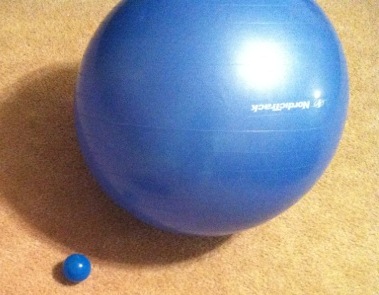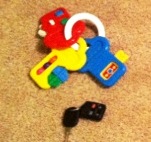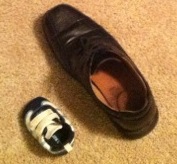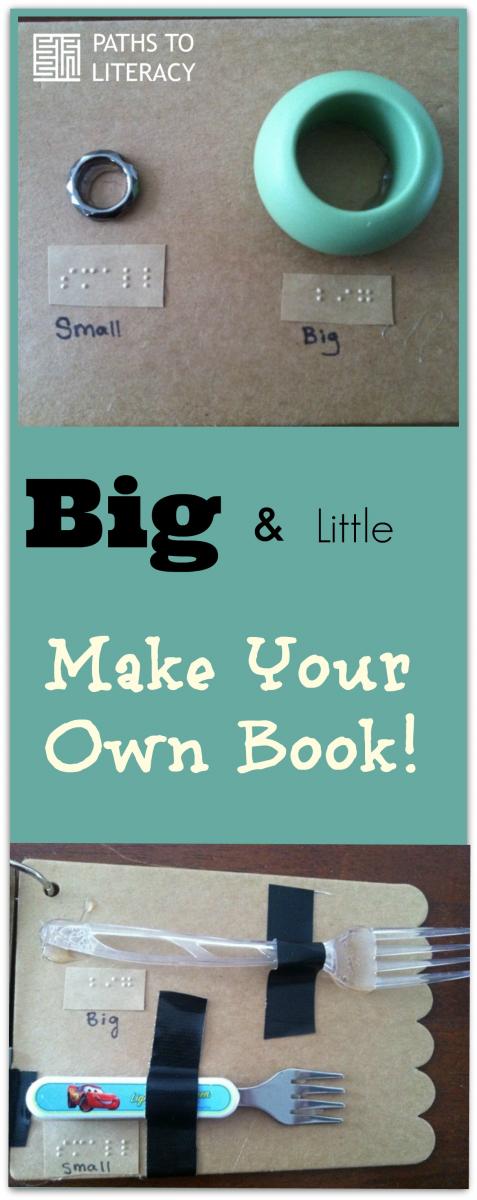Book About the Concept of Big and Small
Submitted by Liamsmom on Feb 19, 2013
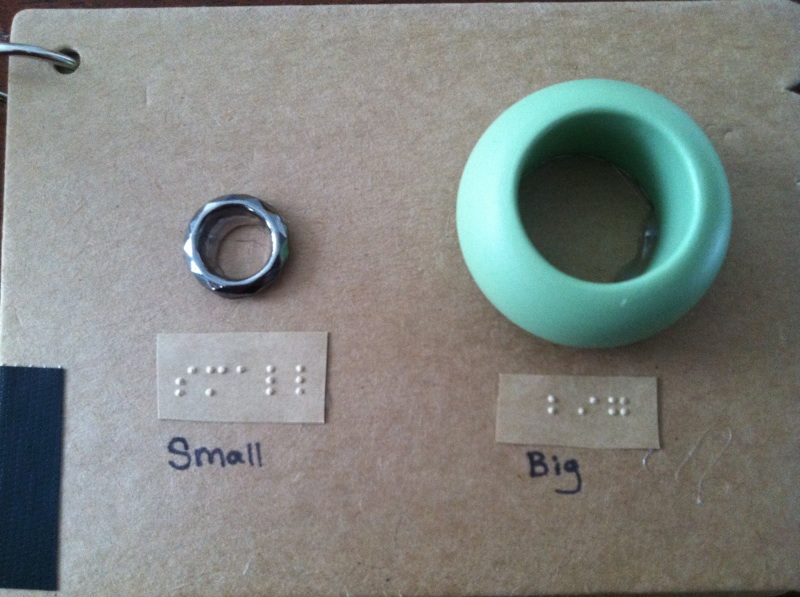
Concept book:
My 3-year-old son Liam, who is newly deaf/blind (lost his sight and hearing to Meningitis a year ago) is learning ASL and picking up on sign language very quickly. The next set of books I wanted to make for my little guy were concept books. Books that teach him a concept but are also repetitive and teach him new sign. The book that is shown below focuses on the concept of BIG and SMALL.
Other ideas of concept books I will be making for him soon (I would love any input on other ideas of concepts) :
-
SOFT vs. HARD
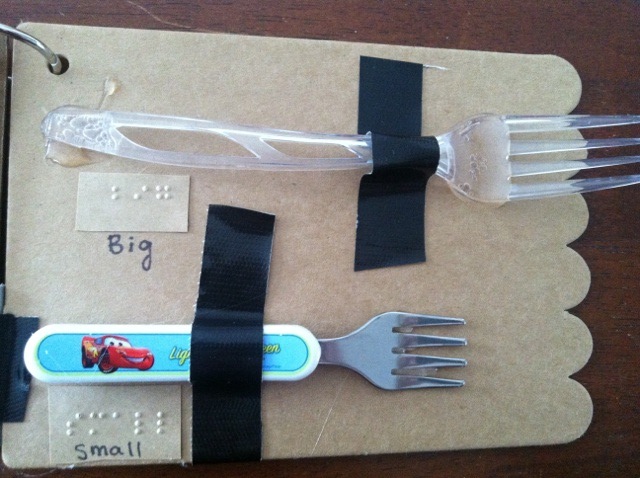
- CIRCLE vs. SQUARE
- SAME vs. DIFFERENT
- TOP vs. BOTTOM
Materials:
-The pages are pre-cut cardboard pages and come hole punched and with a key ring (bought it at Michael's for $1.50). They have sturdier ones that I usally prefer (because they have 3 hole punches and 3 rings) they cost around 8 dollars.
-hot glue gun (all of my books are made with lots and lots of hot glue)
-duct tape (only needed if you have a toddler who is as "rough" on equipment as mine. He loves to test the 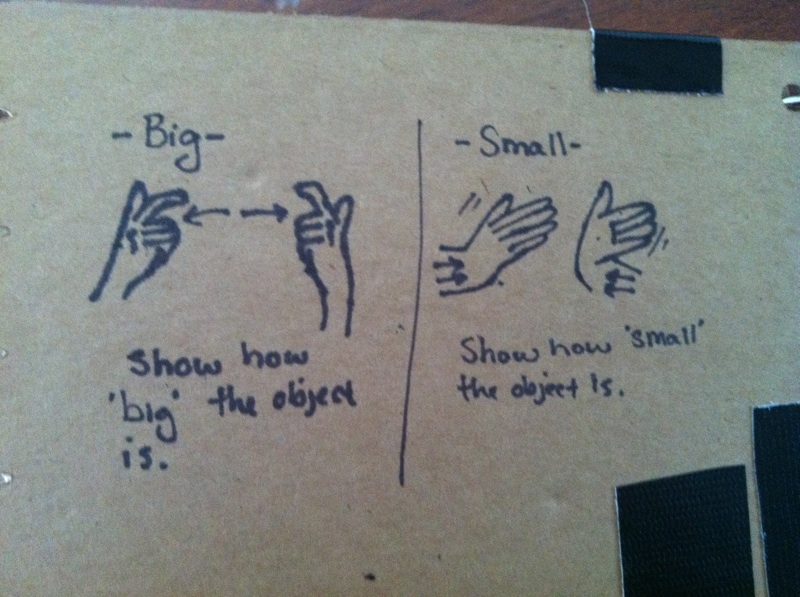 durability of the books I make him! haha)
durability of the books I make him! haha)
 durability of the books I make him! haha)
durability of the books I make him! haha)
-braille words
-ASL pictures of the words you are focusing on (if applicable)
Learning Target:
For Liam to use the words "Big" and "Small".
Explanation of the book:
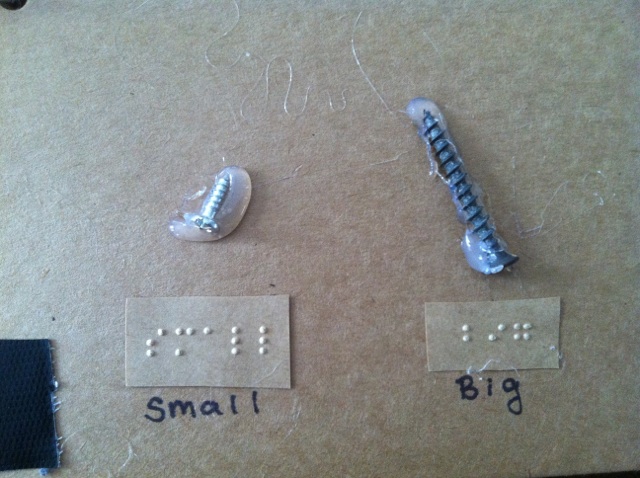 Each page has two objects, one big and one small. Near each object is the braille word for small and for big. I also wrote the words small and big in print so that others reading the book who may not know braille can know what the words say. (Again sorry about all the 'not so pretty duct tape', I needed to make the book Liam proof:) At the end of the book I drew a picture of the ASL sign for the word big and small so if other people want to read the book to Liam they will know the correct signs to use. I could have added the signs for the objects as well to make it more advanced, depends on what your goal is.
Each page has two objects, one big and one small. Near each object is the braille word for small and for big. I also wrote the words small and big in print so that others reading the book who may not know braille can know what the words say. (Again sorry about all the 'not so pretty duct tape', I needed to make the book Liam proof:) At the end of the book I drew a picture of the ASL sign for the word big and small so if other people want to read the book to Liam they will know the correct signs to use. I could have added the signs for the objects as well to make it more advanced, depends on what your goal is. 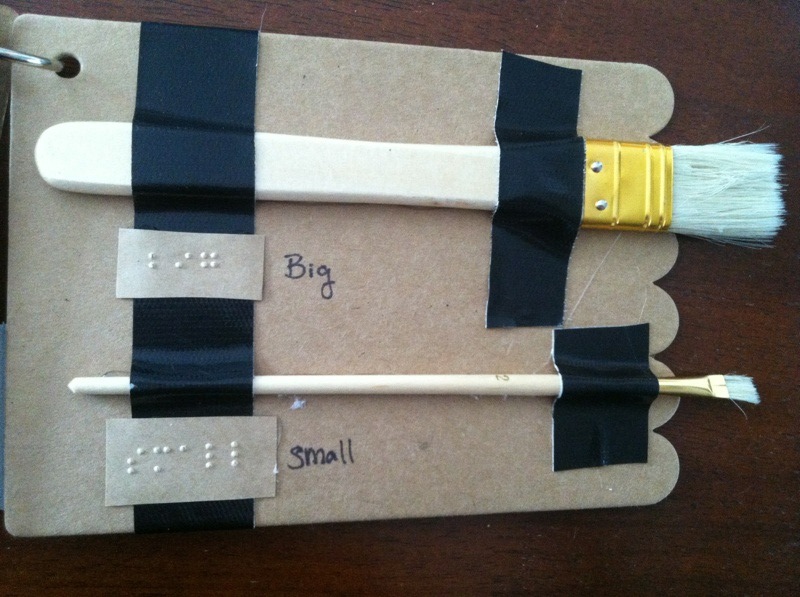
Why I chose the pictures/objects that I did:
I tried to find objects that Liam would find interesting. I also needed to find objects that would fit onto the size book that I was using. Of course, I also I had to choose the objects that were similar just different in size (big vs small).
Extensions:
After I read the book with Liam I show him other objects that are big and small. For example, in the pictures below I show: a small ball and a big ball, small keys and big keys, small shoe and big shoe. All of the objects I would let Liam feel in the extension are objects he knows well and knows the signs of already.
